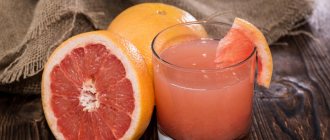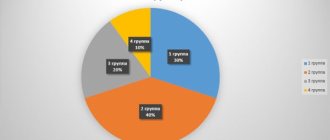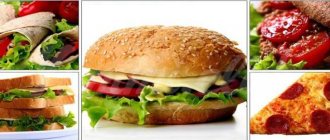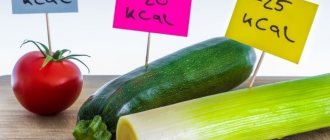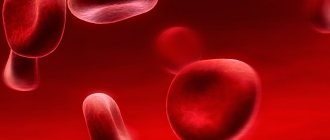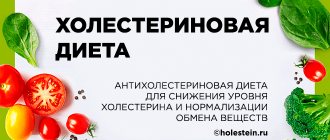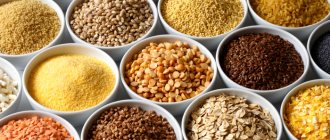All people originally had the first blood group. During evolution, the other three branched off from it. Therefore, people with the first blood group are sometimes conventionally called “hunters.” Owners of this blood type are, as a rule, self-sufficient and strong people. For the most part, these people have strong immune and digestive systems. However, there are also weaknesses, such as problematic adaptation to changes in environmental conditions. Plus, such people are very prone to allergic reactions.
Principles and essence of the diet
According to the theory of naturopath Peter D'Adamo, the first blood type is the very first and at the same time the most important. All the others originate from it. A naturopath described people with blood type O as “hunters.” Based on this, the diet for 1 negative blood group should be based on the following principles:
- If you plan to lose excess weight, then you need to reduce your consumption of legumes. Because of them, the body stops producing insulin.
- Animal food predominates in the diet. Mandatory consumption: “Red meat” (beef, veal, lamb). It should be eaten at least 4 times a week.
- If you have a negative Rh factor, you should avoid introducing cheese into your diet. They are poorly absorbed by the body. The same goes for most dairy products.
- Distribution of the diet over at least 5 meals. Portions should be small.
- Meat can be fried, baked, stewed, boiled or steamed.
- This diet should be long-term. Starting from six months or more.
- Nutritionists recommend additional intake of vitamin and mineral complexes. Also, to achieve the desired result, it is necessary to increase physical activity. For people with the first blood group, various heavy loads are perfect, as well as running, aerobics, swimming, and athletics.
- People with negative blood group need to eat more sea fish. The components contained in its composition have anti-inflammatory properties. They also activate the thyroid gland.
- The menu for “hunters” should be rich in fruits and vegetables that grow in your climate zone. The exception is white cabbage.
- It is necessary to exclude any alcoholic beverages from consumption.
The essence of the diet is to limit yourself to the consumption of prohibited foods and increase the consumption of permitted ones. Neutrals should be present in the diet in small quantities.
During the first weeks, you need to count the number of calories you consume. This figure should not exceed 1800, but should not be less than 1500. If you need to lose a lot of weight, reduce the amount of fruit you eat in favor of increasing the proportion of meat and fish in your diet.
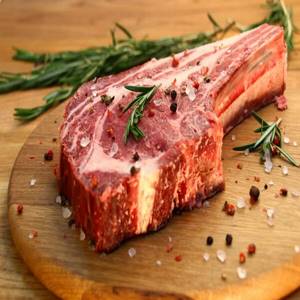
Meat stewed in milk
To prepare this dish you will need the following list of products:
- 300 g of meat (preferably veal);
- half a liter of milk;
- 1 medium carrot;
- 4 tablespoons butter;
- 3 tablespoons of low-fat sour cream;
- herbs and salt to taste.
Rinse the meat under running water, remove excess moisture with a paper towel, cut into cubes and fry with 2 tablespoons of butter. Pour milk over the fried meat and simmer over low heat. While the meat is cooking, you need to wash and peel the carrots, cut them into cubes and simmer in the remaining butter with the addition of a small amount of milk. As soon as the carrots begin to become soft, you should combine them with the meat and continue to simmer until fully cooked. Serve the finished dish with sour cream and herbs.
Advantages and disadvantages
The 1 negative blood group diet has significant advantages:
- If it is followed, there are no serious restrictions on food products. There are a large number of different products available for consumption. Thanks to this, your favorite delicacies that are banned can be replaced with something allowed.
- The body will not suffer from hunger.
- By consuming large amounts of protein, only fatty tissue will be burned during weight loss. The muscle fibers remain unharmed.
However, like other diets, it has disadvantages:
- Psychological factor. In the first days, it will be difficult to refrain from eating familiar foods if they are on the list of prohibited foods.
- People with negative blood type are very susceptible to dietary changes. New products must be introduced and others removed very carefully.
- There is no guarantee that this diet will help you lose weight. The theory proposed by the American naturopath has not received scientific confirmation.
- It is prohibited for people with chronic diseases.
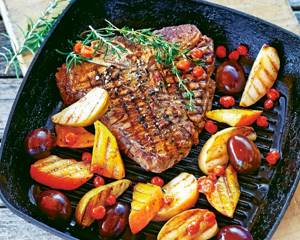
Prohibited foods
What not to eat:
- Mayonnaise;
- Ketchup;
- Citrus fruits (grapefruit is sometimes acceptable);
- Cabbage;
- Lentils;
- Ice cream;
- Hot peppers;
- Cinnamon;
- Raisin;
- Strawberries;
- Melon;
- Eggplant;
- Olives;
- From drinks you should completely exclude black tea and coffee, alcohol, herbal infusions of St. John's wort, hay, echinacea, too acidic drinks, including orange and tangerine juices.
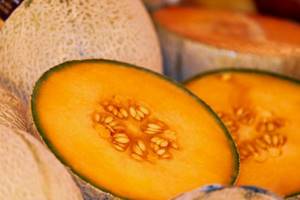
Diet for blood group 1:
Pros: You noticeably lose weight in the early stages.
Cons: excess uric acid formed during the digestion of protein, which can lead to “acidification” of the internal environment, deposition of uric acid salts in internal organs and even gout.⠀
Natalya Khlustova
Ask a Question
Menu
Approximate menu for the whole week for people with the first blood group:
| Day of the week | Eating | Approximate menu |
| Monday | Breakfast | Boiled rice, soft-boiled egg, toast |
| Second tomorrow | Apples and pear | |
| Dinner | Vegetable salad with sweet peppers and cucumbers. It is seasoned with vegetable or olive oil. Roast beef | |
| Afternoon snack | Hazelnut | |
| Dinner | Baked trout | |
| Tuesday | Breakfast | Barley porridge boiled in water, soft-boiled eggs (2 pieces), toast |
| Second tomorrow | Dried apricots and prunes | |
| Dinner | Stewed vegetables with pieces of chicken fillet | |
| Afternoon snack | Dried fruits | |
| Dinner | Salmon fillet with stewed green peas and carrots | |
| Wednesday | Breakfast | Two egg omelette, toast, green tea |
| Second tomorrow | Sea kale | |
| Dinner | Lamb stewed with carrots, onions and zucchini | |
| Afternoon snack | Freshly squeezed carrot juice | |
| Dinner | Baked carp, tomato and cucumber sala | |
| Thursday | Breakfast | Buckwheat porridge, boiled egg |
| Second tomorrow | Nectarines | |
| Dinner | Boiled chicken breast, salad of onions, parsley, cucumbers and tomatoes | |
| Afternoon snack | Dried fruits | |
| Dinner | Halibut fillet, sweet potato, sweet bell pepper | |
| Friday | Breakfast | Half a grapefruit, 100 grams of boiled rice |
| Second tomorrow | Bananas | |
| Dinner | Sea kale, chicken fillet | |
| Afternoon snack | Walnuts | |
| Dinner | Baked sturgeon, Chinese cabbage and onion salad | |
| Saturday | Breakfast | Two boiled eggs, toast |
| Second tomorrow | A glass of freshly squeezed pineapple juice | |
| Dinner | Fried beef, carrots, onions and grilled cucumbers | |
| Afternoon snack | A handful of peanuts | |
| Dinner | Stewed lamb, beet salad with carrots | |
| Before bedtime | Chamomile tea | |
| Sunday | Breakfast | Omelette of two steamed eggs, bread, green tea |
| Second tomorrow | Grapefruit | |
| Dinner | Zucchini with beef cutlets | |
| Afternoon snack | Handful of raisins | |
| Dinner | Baked pike, beet salad | |
| Before bedtime | Chamomile tea |
What is the AB0 system and the Rh factor?
At the beginning of the 20th century, Landsteiner discovered the blood group system - AB0. He was one of the first to divide blood groups according to the presence or absence of agglutinogens - substances located on the membrane of red cells. This is how A, B, AB and 0 types appeared. Antigen A on the surface of red blood cells gives the second blood group, agglutinogen B - the third. AB are two agglutinogens on the surface of blood cells and the fourth group. 0 is the absence of agglutinogens on the membrane and the first group.
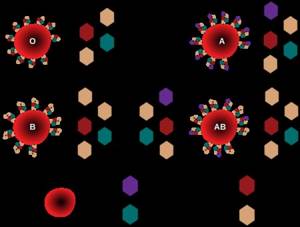
AB0
At the end of the 20th century, another group was discovered that reacted to type 0 - Bombay blood. Individuals with the Bombay group cannot synthesize the H-antigen, which is present in all representatives of AB0, so they produce antibodies even against the first group. Officially, the first type of blood is considered a “universal” donor, but in fact it is the Bombay type.
In the 1950s, Winner and Landsteiner discovered the D antigen in a young woman who had agglutinated red blood cells during a blood transfusion. It was originally called the “Rh factor” due to an erroneous historical interpretation that the D-antigen was supposedly found in rhesus monkeys.
In literary “jargon” this word has taken root and is used to this day. People who have D protein on the membrane of their blood cells are called Rh positive, and those who do not are called Rh negative. During blood transfusion, this indicator plays an important role and allows you to more accurately determine blood compatibility.
What is allowed on the diet
Products for 1 negative group are divided into those that are necessary to eat and those that are not recommended to be eaten.
Allowed
You can eat the following:
- meat (red) – beef, lamb, veal;
- fish - trout, salmon, tuna, salmon, halibut, pike, perch, carp;
- vegetables - onions, carrots, beets, broccoli, sweet peppers, Chinese cabbage;
- fruits - nectarines, apricots, grapefruits, apples, pears, bananas;
- nuts and dried fruits;
- green and herbal teas;
- vegetable, olive oil;
- toast and rye bread.
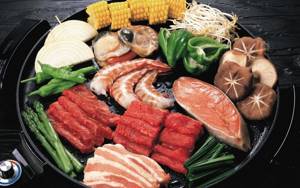
Prohibited Products
What is prohibited on the diet:
- meat - pork, ham, any sausages;
- salty fish;
- vegetables – white cabbage, potatoes;
- fruits – oranges and tangerines;
- flour products and any baked goods;
- sauces;
- dairy products;
- coffee and black tea.
Unnamed products are neutral and permitted for consumption. The main rule is not to abuse them.
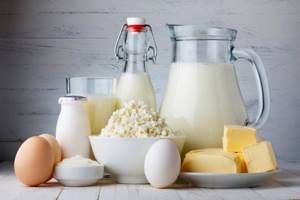
Additional Tips
To achieve maximum results, it is recommended to use the following tips:
- If you are overweight, the bulk of your meals should consist of vegetables. They are eaten both stewed and fresh or baked. You can cook stewed meat with vegetables or bake it in the oven. At the same time, the amount of fruit and nut consumption decreases.
- At the very beginning, the first 14 days of following a diet, it is recommended to carry out daily calorie calculations. Calorie content should not exceed 1800 kcal. These are safe indicators for losing weight.
This will help you lose excess weight in the shortest possible time without harm to your health.
Dish recipes
Several recipes for proper nutrition during the 1 negative blood group diet.
Beef salad with zucchini
To prepare this healthy dish you will need 300 grams of boiled beef, 1 zucchini, 1 sweet pepper, 1 onion, juice from half a lemon, a little salt, ground pepper.
Preparation:
- Peel the zucchini and cut into small cubes. Transfer to a separate plate and season with salt. So he should lie for half an hour;
- at this time, cut the beef as small as possible, fry in a frying pan for three minutes;
- Place all ingredients in one deep plate, add sugar, pepper, lemon juice. To stir thoroughly.
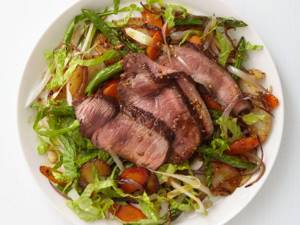
Salad with tomatoes and chicken
For this dish you will need 200 g of boiled chicken fillet, two tomatoes, green peas, carrots, olive oil, lettuce, salt and pepper.
Preparation:
- chop the chicken and place in a large plate, add pepper;
- finely chop the carrots and tomatoes, chop the lettuce leaves;
- mix everything with meat, add salt and season with olive oil.
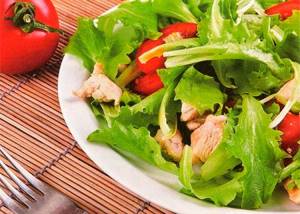
Carrot puree
To prepare carrot puree, you need the following ingredients:
- 200 g carrots;
- a quarter glass of milk;
- 1 tablespoon flour;
- 2 tablespoons butter;
- sugar and salt to taste.
Rinse the carrots under running water, peel thoroughly and steam, then grind the finished carrots in a blender until pureed. Combine flour with butter and add to the resulting puree. Add milk, salt and sugar, mix thoroughly until smooth. Bring the mixture to a boil over low heat, stirring continuously. Healthy carrot puree is ready.
Contraindications and side effects
Even such a “loyal” diet is prohibited in some cases:
- It is prohibited for pregnant and lactating women.
- People with kidney problems.
- With high cholesterol levels in the blood.
- Diabetes mellitus.
- People suffering from infectious diseases.
- Problems with the gastrointestinal tract (ulcers, gastritis).
Also, if the diet rules are violated or if there is a lack of any substances in the body, the following side effects may be observed:
- Skin rashes.
- Itching.
- Weakness, nausea, headaches.
- Hair loss.
- Peeling of nails.
- Changes in skin tone.
- Stool disorders.
- Pain in the abdomen and intestines.
Single food table for all types
Below is a table where the main food groups are distributed according to the needs of people of different blood types.
It's not difficult to figure it out. Select your group in the horizontal column and the required product in the vertical column. Match the two lines and estimate the indicated value.
The “+” sign indicates that the product is useful. If there is a “-” next to the name, it is prohibited. And “0” indicates a neutral effect of food for your blood type.
Table - The influence of food on a person’s weight and health depending on blood type
| Products | 1 | 2 | 3 | 4 | Products | 1 | 2 | 3 | 4 |
| Meat, poultry, eggs | Dairy | ||||||||
| Ham | — | — | — | — | Whole milk | — | — | — | |
| Beef | + | — | — | Yogurt | — | + | + | ||
| Ground beef | + | — | — | Casein (food grade) | — | — | |||
| Veal | + | — | — | Kefir | — | + | + | ||
| Bacon | — | — | — | — | Goat milk | — | + | + | |
| Mutton | + | — | + | + | Skim milk | — | — | + | |
| Rabbit | — | + | + | Milk serum | — | — | |||
| Goose | — | — | — | — | Ice cream | — | — | — | — |
| Duck | — | — | — | Cream | — | — | — | ||
| Turkey | + | + | Sour cream | — | + | + | |||
| Broiler | — | — | Cow's milk cheese | — | — | ||||
| Egg | + | Sheep cheese | + | + | |||||
| Chick | — | — | Processed cheese | — | — | ||||
| Ham | — | — | — | — | Curd cheese | + | + | ||
| Heart | + | — | — | — | Homemade cottage cheese | + | + | ||
| Liver | + | — | Oil, fats | ||||||
| Salo | — | — | Cod liver oil | ||||||
| Pork | — | — | — | — | Margarine | — | — | ||
| Fish and seafood | Peanut butter | ||||||||
| Carp | + | Coconut oil | — | — | — | — | |||
| Smelt | Corn oil | — | — | — | — | ||||
| Catfish | — | — | Flaxseed oil | + | + | ||||
| Caviar | — | — | — | + | Olive oil | + | + | + | + |
| Squid | — | — | Sunflower oil | — | — | ||||
| Flounder | — | + | — | Butter | — | — | |||
| Salmonidae | + | + | + | + | Soybean oil | — | |||
| Salmon (Smoked) | — | — | — | — | Cottonseed oil | — | — | — | — |
| Mackerel | + | + | + | + | Seeds and nuts | ||||
| Seaweed | + | — | Peanut | — | + | — | + | ||
| Sea bass | + | + | Walnuts | + | + | ||||
| River perch | Pine nuts | — | |||||||
| Sturgeon | + | + | + | Almonds | |||||
| Halibut | + | — | + | — | Hazelnuts | — | — | ||
| Crustaceans | — | — | — | Poppy seeds | — | + | + | ||
| Pickled herring | — | — | + | — | Sunflower seeds | — | — | ||
| Fresh herring | + | + | Pumpkin seeds | + | + | — | — | ||
| Salted herring | — | — | — | Pistachios | — | — | — | ||
| Whitefish | + | + | + | + | Legumes | ||||
| River pike | + | + | + | Soybeans | + | + | + | ||
| Som | — | — | Navy beans | — | — | + | + | ||
| Zander | + | + | + | Black beans | + | — | — | ||
| Cod | + | + | + | + | Green peas | ||||
| Tuna | + | Green peas | |||||||
| Acne | — | — | — | Soy milk | + | + | |||
| Mackerel | + | + | + | + | Soy cheese | + | + | ||
| Trout | + | + | + | + | White beans | ||||
| Hake | + | — | + | — | Spotted beans | + | + | — | + |
| Grain, flour | Green beans | ||||||||
| Wheat bagels | — | — | — | Lentils | — | + | — | + | |
| Rice waffles | + | + | + | Spices, spices | |||||
| Hot buns | — | — | Vanilla | — | |||||
| Buckwheat | + | — | — | Carnation | |||||
| Corn starch | — | — | — | Mustard | + | ||||
| Semolina | — | — | Fruit jam and jelly | ||||||
| Pearl barley | — | Ketchup | — | — | — | — | |||
| Barley groats | — | Coriander | |||||||
| Corn | — | — | — | Cinnamon | — | — | |||
| Pasta | — | — | Bay leaf | ||||||
| Buckwheat flour | + | — | — | Mayonnaise | — | — | |||
| Durum wheat flour | — | — | Honey | ||||||
| Corn flour and grits | — | — | — | Nutmeg | — | ||||
| Oat flour (oatmeal) | — | + | + | + | Paprika | ||||
| Rye flour | + | — | + | Pepper curry | + | + | + | ||
| Muesli | — | — | — | Black pepper | — | — | — | ||
| Cracker cookies | — | — | Parsley | + | + | + | |||
| Oatmeal cookies | — | + | Granulated sugar | ||||||
| Millet | + | + | Pickles and marinades | — | — | ||||
| Rye gingerbread | — | Caraway | |||||||
| Wheat | — | — | — | Dill | |||||
| Rice | + | + | White vinegar | — | — | — | |||
| Rye | + | — | Wine vinegar | — | — | — | |||
| Grain bread | — | — | — | Apple cider vinegar | — | — | — | ||
| Wholemeal bread | — | — | — | Fennel | |||||
| Spelled bread | Horseradish | + | + | ||||||
| Wheat-rye bread | Chocolate | ||||||||
| Wheat bread | — | + | Vegetables, mushrooms | ||||||
| Rye bread | — | + | Sweet potato | + | — | + | + | ||
| Rye bread | + | — | + | Swede | + | ||||
| Cornflakes | — | — | — | Mushrooms (oyster mushroom) | + | ||||
| Oat flakes | — | + | + | Daikon | |||||
| Wheat flakes | — | — | — | Zucchini | |||||
| Barley | — | White cabbage | — | — | + | ||||
| Berries and fruits | Broccoli | + | + | + | + | ||||
| Avocado | — | — | — | Brussels sprouts | — | + | |||
| Cherry plum | + | + | + | + | Chinese cabbage | — | — | + | |
| A pineapple | + | + | + | Red cabbage | — | — | + | ||
| Orange | — | — | — | Cabbage | + | + | + | + | |
| Watermelon | Cauliflower | — | — | + | + | ||||
| Banana | — | + | — | Potato | — | — | — | ||
| Barberry | — | — | — | Kohlrabi | + | + | |||
| Cowberry | + | + | + | Watercress | + | + | + | + | |
| Grape | + | + | Bow-feather | + | |||||
| Cherry | + | + | Leek | + | + | ||||
| Blueberry | + | Bulb onions | + | + | |||||
| Pomegranate | — | — | Carrot | + | + | ||||
| Grapefruit | + | + | cucumbers | + | |||||
| Pear | Parsnip | + | + | + | |||||
| Melon | — | — | Hot pepper | + | — | + | + | ||
| Blackberry | — | + | Sweet pepper | — | + | + | |||
| Raisin | Rhubarb | — | — | — | — | ||||
| Figs | + | + | + | Radish | — | — | |||
| Kiwi | + | Radish | — | — | |||||
| Strawberry | — | Turnip (turnip) | + | + | |||||
| Cranberry | + | + | + | Head lettuce | |||||
| Gooseberry | + | Leaf lettuce | — | ||||||
| Lemon | + | + | Beet | ||||||
| Raspberries | Beetroot | + | + | + | + | ||||
| Mandarin | — | — | Celery | + | |||||
| Green olives | — | — | — | Asparagus | |||||
| Black olives | — | — | — | Tomatoes | — | — | |||
| Nectarine | Jerusalem artichoke | + | + | ||||||
| Coconut nut | — | — | + | + | Pumpkin | + | + | — | |
| Peach | Chicory | + | + | ||||||
| Plum | + | + | + | + | Champignon | — | — | ||
| Currant | Spinach | + | + | ||||||
| Persimmon | — | — | Juices | ||||||
| Cherries | + | + | + | Apricot | + | ||||
| Blueberry | + | Alychevyy | + | + | |||||
| Prunes | + | + | Pineapple | + | + | + | |||
| Apple | + | + | + | + | Orange | — | — | — | |
| Herbal teas | Birch | ||||||||
| Hawthorn | + | + | Grape | + | + | ||||
| Valerian | + | Cherry | + | ||||||
| Ginseng | + | + | + | Pomegranate | — | — | |||
| St. John's wort | — | + | Grapefruit | + | |||||
| Strawberry (leaves) | — | + | Cabbage | — | + | + | |||
| Linden | + | — | — | Cranberry | + | + | |||
| Burdock | — | + | + | Citric | + | ||||
| Raspberries | + | Carrot | + | ||||||
| Coltsfoot | — | — | — | Cucumber | |||||
| Mint | Celery | + | + | ||||||
| Dandelion | + | Plum | + | + | |||||
| Parsley | + | + | Tomato | — | — | ||||
| Chamomile | + | + | Apple cider | — | |||||
| Licorice root | + | + | Apple | — | |||||
| Yarrow | Other drinks | ||||||||
| Chebrets | White wine | ||||||||
| Echinacea | + | + | Red wine | + | |||||
| Rosehip berries | + | + | + | + | Vodka | — | — | — | — |
| Coca Cola | — | — | — | — | |||||
| Cognac | — | — | — | — | |||||
| Coffee black | — | + | + | ||||||
| Lemonade | — | — | — | — | |||||
| Alcohol tinctures | — | — | — | — | |||||
| Beer | — | ||||||||
| Soda drinks | + | — | — | ||||||
| Green tea | + | + | + | ||||||
| Black tea | — | — | — |
Reviews, results with before and after photos
Veronica 32 years old
I have a negative blood group. I thought for a long time about what diet to choose to get my body in order. As a result, I decided to try the method for my blood type. I can immediately say that the result comes very slowly. This is not a one month diet. The result was noticeable only after 5 months.
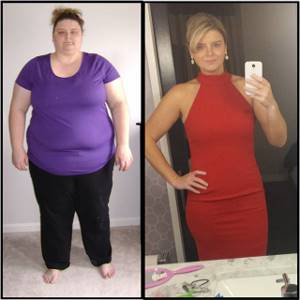
Marina 27 years old
I didn’t believe in the effectiveness of the blood type diet. I have tried more harsh methods before, but their effect does not last long. I decided to try a long-term course of weight loss. The result was impressive.

First negative blood group. Advantages and disadvantages. Peculiarities :
It is imperative to know your blood type. But this is not enough yet. The Rh factor plays a special role. It is he who leaves a special imprint on the entire human body.
And if such a situation occurs in life when a blood transfusion is required, the doctor will need to know both the group and the Rh factor. Negative blood type occurs in approximately 15 percent of Europeans.
What are its features, as well as its pros and cons?
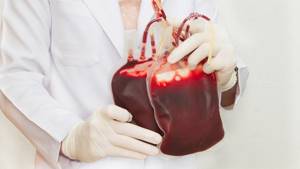
Blood group one is negative. Characteristic
Many people think that blood type, as well as Rhesus, leave a certain imprint on the person himself. Of course, this does not mean that they will all be similar in appearance. But, nevertheless, scientists, having conducted a lot of research, have made some conclusions regarding the very characteristics of the group and the people who have it.
Thus, it is generally accepted that people who have the first blood group, Rh negative, most often suffer from colds due to reduced immunity. But it does not provide exact facts about why this happens and why people have weak immunity.
People with this blood type were also isolated from the general group. And most of them were overweight, which was due to poor nutrition and low mobility. This happens because it is difficult for the body to absorb fats and large amounts of carbohydrates. Therefore, it is recommended to follow a diet.
Regarding character, everyone emphasizes that people with the first group have leadership qualities and are a bit like hunters. They need to achieve what they want at any cost. And often the means and efforts put into this in no way correspond to the result.
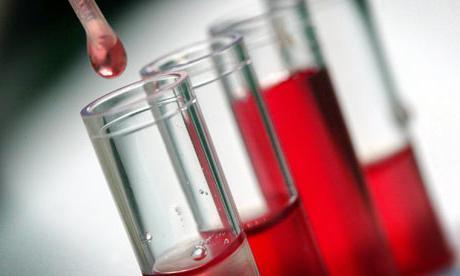
Education process
The process of formation of the first negative blood group is very interesting. Blood type is determined by a combination of antigens. This process is very unusual and exciting.
A child with a first negative blood group may have:
- If both parents have blood type O.
- If one of the parents has the first blood group, and the other has the second or third.
- If one of the parents has the second group, and the other has the third. Or both have the second (or third) group.
It should be noted that a man and a woman will never have a child with the first blood group if one of them has the fourth group. But a baby with Rh negative can sometimes be born to Rh positive parents (if they are heterozygous).
Advantages
The first blood group, Rh negative, actually has only one significant advantage. Due to the fact that blood has virtually no antigenic properties (that is, it practically does not cause an immune response to foreign cells), it is considered one of the safest donors for transfusion.
As scientists note, such blood can be transfused to everyone, regardless of what Rh factor a person has and what blood group. True, this cannot be done intentionally.
This process is allowed only in emergency situations, when there is no “native” blood and it is necessary to resort to transfusion of the first negative one.
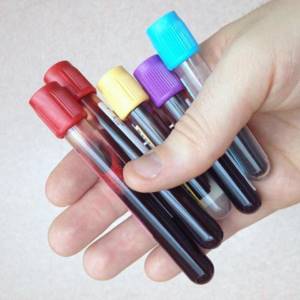
Flaws
As for the shortcomings, there are many more of them. It should be noted that if the first negative group is universal, that is, it can be transfused to all people, then a person born with it can only be infused with the first negative and no more. Otherwise, it will lead to an immune response, and in extreme cases, even death.
Other disadvantages include:
- Tendency to acute respiratory viral diseases.
- Tendency to diseases of the gastrointestinal tract.
- The risk of hypertensive crisis in men increases.
- Increased likelihood of developing allergic reactions.
- Tendency to be overweight.
In addition, according to statistics, cases of hemophilia in men occur most often if they have the first negative blood group.
Personal characteristics
Some scientists directly link blood type and Rh with a person’s personal qualities. Thus, it is generally accepted that people with this group have strong-willed qualities, which can lead to narcissism, intolerance of criticism towards them, and jealousy. At the same time, they are characterized by low endurance and poor adaptability to new living conditions (often worse).
First negative blood group. Compatibility
The question of blood group compatibility arises only in two cases:
- When a blood transfusion is required.
- When a woman becomes pregnant.
If all the rules were not followed and the doctors did not control the situation, this could result in serious consequences.
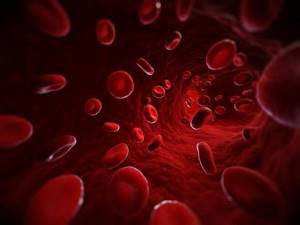
Blood transfusion
Particular attention should be paid not only to the blood group itself, but also to Rhesus. Under no circumstances should a person with first negative blood be transfused with blood of any other group. Previously, many years ago, such a transfusion was allowed, however, it only concerned the second blood group with the same Rhesus.
But still, such a transfusion can lead to a worsening of the condition. And if Rh negative blood was transfused, the consequences will be less serious. But if incest suddenly occurs, and the positive is mixed with the negative, then the person’s life will be in danger. In this case, it may be necessary to completely replace all the blood to cleanse it of foreign and dangerous proteins.
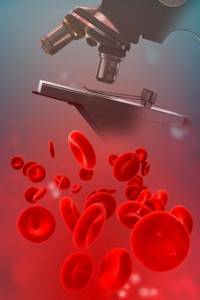
Pregnancy
Special attention is paid to compatibility during pregnancy. Everyone knows that Rhesus conflict often occurs. This concept was introduced relatively recently, and that is why obstetricians and gynecologists monitor expectant mothers with negative Rhesus very closely.
The first negative blood group during pregnancy can cause fetal rejection.
Therefore, many girls in the first 12 weeks can remain in storage for more than a month, because the body simply rejects, as it seems to it, a foreign organism.
They should lead a measured lifestyle, since anything can serve as an impetus for a reaction. And it is noted that their toxicosis is much stronger than that of girls with positive Rhesus.

How does conflict arise?
During pregnancy, many women do not think about how their Rh and blood type (or father) can affect the baby itself and the process of pregnancy itself.
In fact, everything is very complicated. The first negative blood group in women is dangerous if the father has positive Rh. In this case, the probability of inheriting Rh will be 50 to 50. But most often it is positive Rh who is inherited.
Often, the mother already finds out about such a conflict immediately after visiting the gynecologist, or rather, taking tests. After this, she will be closely monitored and if there is any nagging pain, she will be placed in storage, as the risk of miscarriage and missed pregnancy increases.
Also, a conflict (but to a lesser extent) can arise if the mother has positive Rh and the father negative, and the child inherited the father’s Rh. In this case, the threat of miscarriage is much less, but this does not mean that you should be careless and negligent about your health.
Second and subsequent pregnancies
The first negative blood group in a woman means that under no circumstances should she have an abortion, especially if the child is the first. If she does this, then the likelihood of having another child is reduced many times, and more often than not, children will be born with health problems.
Quitting the diet
To properly exit the diet, you need to follow several rules. Firstly, do not overeat the first two to three weeks after finishing the diet. Secondly, carefully introduce forbidden foods into your diet. Reduce the amount of what is allowed and replace it with what is prohibited. Thirdly, do not forget about physical activity. It is advisable to maintain it even without the support of a blood type diet.
The 1 negative blood group diet is not just another way to get rid of extra pounds. With its help, you can strengthen the entire body, increase immunity, improve the functioning of the thyroid gland and prevent disorders of the gastrointestinal tract.
Share the article on social media. networks:
( 1 ratings, average: 5.00 out of 5)
Nutrition for 1 (first) negative blood group: food table, menu, diet for weight loss
One of the most popular nutrition systems is the blood type diet. It is compiled taking into account the individual characteristics of the body and is suitable even for those people for whom most other weight loss diets are contraindicated. Those with the first blood group have good health and digestive system, as well as fairly good immunity.
There are also weaknesses, which include a tendency to allergies and poor adaptation to changes in the external environment. The diet for the first blood group with negative Rh takes into account all these points and allows you to create a correct and balanced menu.
Statistics and Research
The founder of the diet system for blood group 1 negative (like the others: 2,3,4) was Dr. Peter D'Adamo. He conducted many studies showing that a person's blood type and diet are interrelated.
According to the scientist, it is necessary to select individual sets of products for representatives of each blood group. This will help improve metabolism, restore the proper functioning of all systems in the body and get rid of excess fat deposits.
According to d'Adamo's research, carriers of the first negative blood group were people who were engaged exclusively in hunting and gathering. This is the blood type that arose very first. The basis of the diet should be meat.
P. D'Adamo
Interesting recipes
Despite the fact that at first glance, preparing dietary dishes may seem complicated, it is not. Everything is prepared quite simply and quickly. Let's look at a few of them.
Minestrone
Required ingredients:
- Tomato – 4 pcs.
- Rice – 100 g.
- Dried peas – 200 g.
- Zucchini – 2 pcs.
- Onions, carrots - 1 pc.
- Cabbage – ½ pc.
- Beans – 200 g.
- Olive oil – 3 tbsp. l.
- Water – 2.5 liters
- Spices to taste.
Preparation progress:
- To prepare, you need to chop the cabbage, finely chop the zucchini, carrots and tomatoes.
- Fry the onion in olive oil.
- Place vegetables in boiling water and simmer for an hour.
- After a while, add rice and peas to the broth.
- Cook until done.
Baked lamb with prunes
Required ingredients:
- Lamb – 500 g.
- Carrot – 1 pc.
- Prunes – 200 g.
- Raisins – 100 g.
- Salt and pepper to taste.
Preparation progress:
- Rub salt and pepper into the meat, make small cuts, and place small slices of carrots in them.
- Place the well-washed prune meat on the foil and the raisins on it.
- Then wrap the foil tightly and place it in an oven preheated to 160 o C for 60 minutes.
How and why it works
Blood type diets are based on dividing foods into three categories:
| Beneficial, having a healing effect |
|
| Harmful |
|
| Neutral |
|
Nutritionists advise people following this type of dietary restriction to eat only healthy foods. Neutral foods should be rarely present on the table, but harmful ones should be removed from the diet forever.
Experts say that in order to start losing weight on a diet for the first negative blood type, you need to start following three rules:
- Make meals small and frequent. Eat at least five to six times a day in small portions.
- Completely remove inappropriate foods from dishes.
- Make time for exercise.
These are general rules that will help balance weight for any blood type.
How much can you lose?
The number of kilograms lost directly depends on the desire and individual characteristics of the person losing weight.
But weight loss is guaranteed. There are a number of reasons for this:
- The diet does not contain foods that are harmful to everyone - sugar, baked goods, fast food, carbonated and alcoholic drinks. By eliminating this “food waste,” a person begins to lose weight naturally.
- By focusing on the selection of ingredients when cooking, those losing weight begin to take a more responsible approach to this process. Harmful foods disappear from the diet, and proper eating habits begin to form. This helps increase energy and speeds up metabolic processes.
- Quality nutrition is a step towards physical activity. The developers consider physical activity as an important element of the diet. For meat-eaters with a low metabolism, intensive jogging, swimming, and fitness are recommended. Systematic exercise is an additional factor in weight loss: it helps stabilize mood, control hunger, and avoid breakdowns.
If you noticed that the compiled menu does not contain clear portion sizes. You shouldn't go hungry. With the right diet, the kilograms will go away on their own. If there is a desire to speed up the process, then the amount of food can be reduced, but within the range of 1500-2000 kilocalories per day.
You have to get used to the idea that this is not a short-term diet, but a way of life.
And one more thing - don’t be greedy and share on social networks!
Atkins diet - how does it work? Detailed description and menu
This is the best gratitude for us...
Diet rules based on blood type
The basis of the dishes should be protein that is easily absorbed by the body. A person who has a negative blood group must follow the following recommendations:
- Products that provoke fermentation are contraindicated . Sour fruits, cabbage, yeast, and corn should be excluded.
- Milk is removed from the diet . It is replaced with low-calorie cottage cheese, kefir, and yogurt.
- People with blood type O lack iodine . Therefore, daily products should contain this component. It is found in seaweed, which is important for the proper functioning of the thyroid gland.
- Carriers of the first blood group have a hard time tolerating cereals . They should be on the menu no more than once or twice a week. It is recommended that women take magnesium and potassium at the same time.
- It is recommended to eat as many dried fruits as possible . They are best to remove feelings of hunger.

